I booked the cheapest accommodation on an overnight train in Europe. I’ll never do it again.
6 min readI booked the cheapest accommodation on an overnight train in Europe. I’ll never do it again.
Copy Link
Impact Link
Save
Read in app
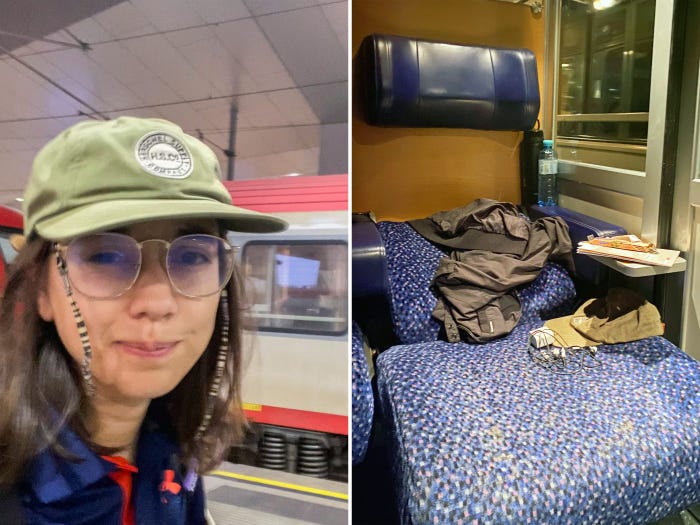
Joey Hadden/Business Insider
- I spent 12 hours in a regular seat on an overnight train from Berlin, Germany, to Vienna, Austria.
- For less than $50, I got a reclining seat in a seating carriage cabin with five other people.
- I’ve traveled on Amtrak sleeper cars but in private rooms. I didn’t adjust well to the shared space.
In October 2022, I spent 12 hours traveling in a sleeping carriage on an overnight train from Berlin, Germany, to Vienna, Austria.
I had taken overnight trains in the US before, where I’d booked private cabins.
But this was my first time on a sleeper train in Europe — and my first time in an accommodation shared with other guests.
I thought an overnight train would be the best way to travel through Europe and maximize my time exploring during the day. And at $40, it was the cheapest overnight train ride I’ve ever booked. But ultimately, the ride was too cramped and bumpy to sleep, and I arrived in Vienna feeling exhausted.
To get from Berlin to Vienna in 12 hours, I took Austrian Federal Railway’s OBB Nightjet train.
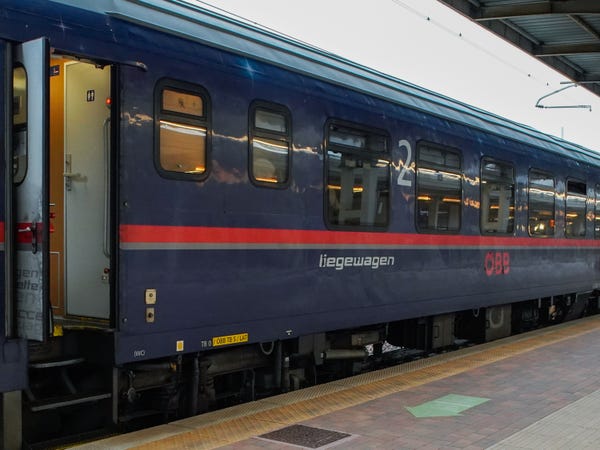
Joey Hadden/Business Insider
The rail line operates overnight routes between Austria, Italy, France, and the Netherlands, and it goes as fast as 143 miles per hour, according to the company’s website.
Nightjet trains have sleeper cars with bunks of three, four, or six, as well as seating carriages.
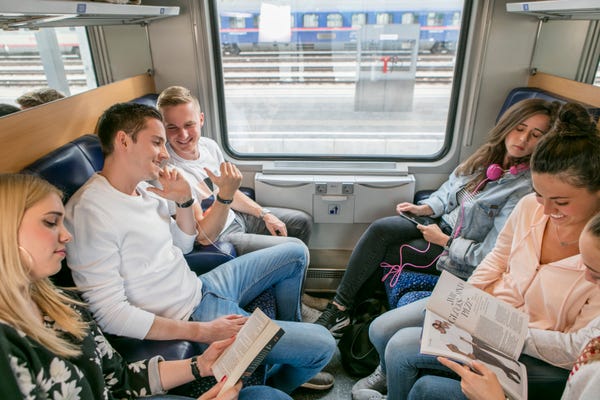
Nightjet – © ÖBB/Harald Eisenberger
I booked the latter; they’re cabins with six regular assigned seats that deeply recline. Some routes have private cabins, but mine didn’t.
“We recommend the sleeper or couchette car for night travel. There is enough space to stretch out. Seated carriages are recommended for shorter journeys,” OBB Nightjet wrote in a statement to Business Insider.
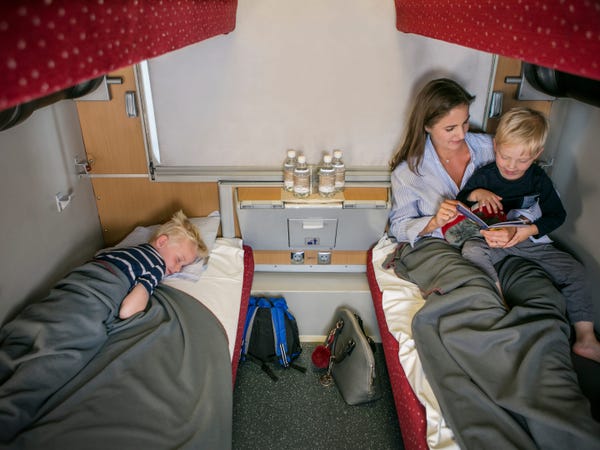
Nightjet – © ÖBB/Harald Eisenberger
“The quality of travel depends not only on the carriages, but also on the route,” the statement also said.
To travel by train, I bought a Eurail pass for $477, which gives access to most European trains for a set number of days.
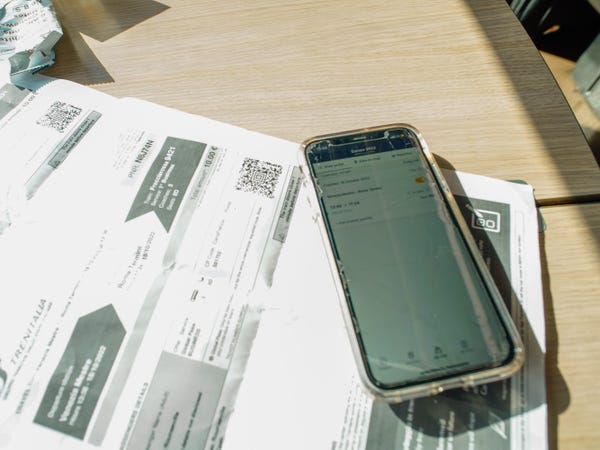
Joey Hadden/Business Insider
Some trains only require a Eurail pass to ride, while others, including overnight trains, incur an additional discounted price.
Without the pass, the ticket would have been about $40.
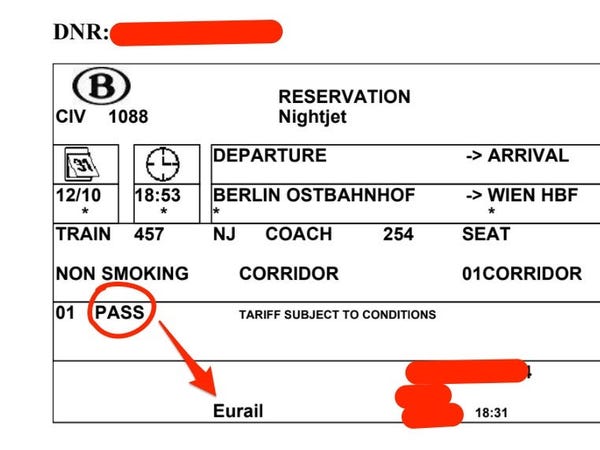
Joey Hadden/Business Insider
With my seven-day Eurail pass, the train trip cost $14. It was the cheapest overnight accommodation.
My journey began at Germany’s Berlin Ostbahnhof train station.
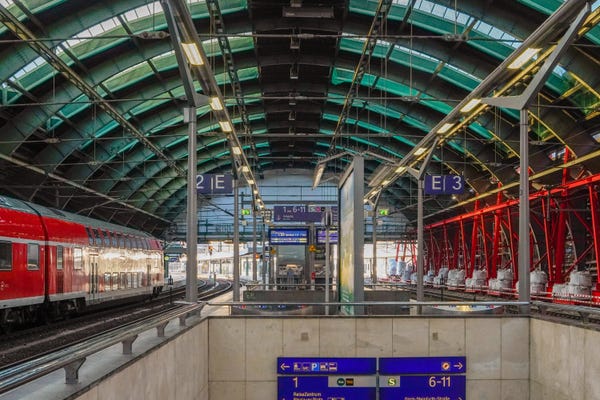
Joey Hadden/Business Insider
I arrived about an hour and a half before my 6:53 p.m. train so I’d have ample time to find the platform.
Since my ticket didn’t include a meal, I grabbed food from the McDonald’s inside the station.
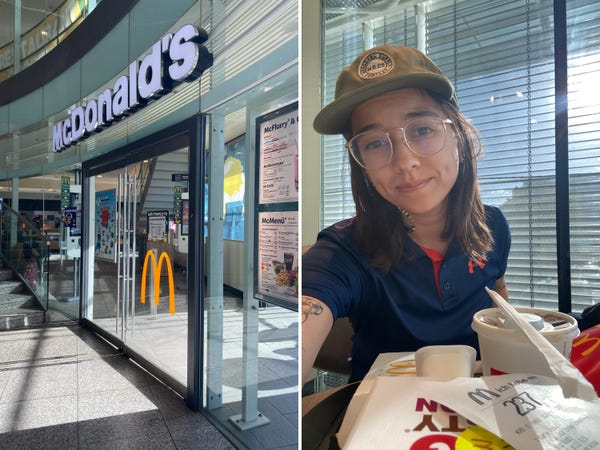
Joey Hadden/Business Insider
McDonalds in Germany has different menu items from locations in the US, like the hash brown burger.
Then I went to platform three after viewing on a screen that it was where my train would be arriving.
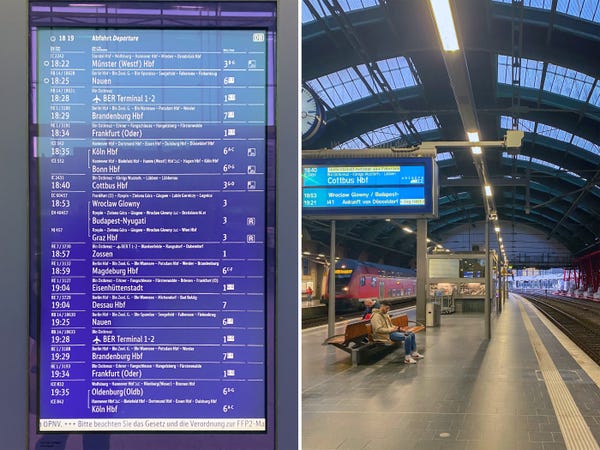
Joey Hadden/Business Insider
The train arrived on time and I found and boarded my assigned car, number 254.
Once inside the seating carriage sleeper cars, I saw narrow, dimly lit corridors that opened to small enclosed cabins with six seats in each.
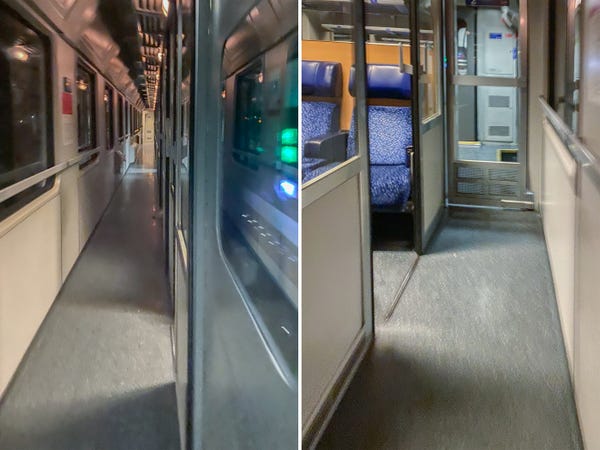
Joey Hadden/Business Insider
I made my way to my assigned seat in one of these cabins.
During my leg of the journey, three travelers were already in my room when I boarded.
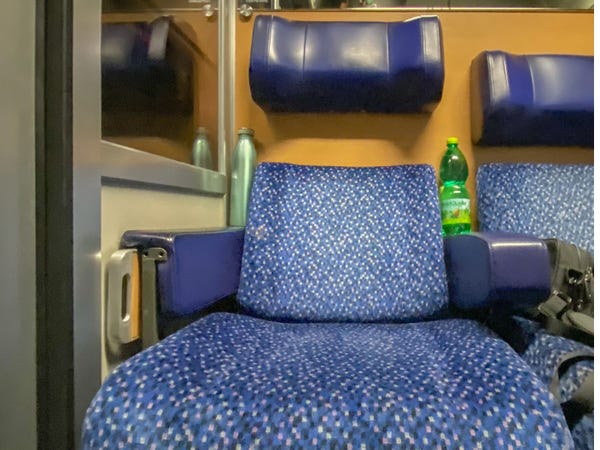
Joey Hadden/Business Insider
Two others arrived within the first few hours.
I thought the seat was slightly wider than a typical train coach seat.
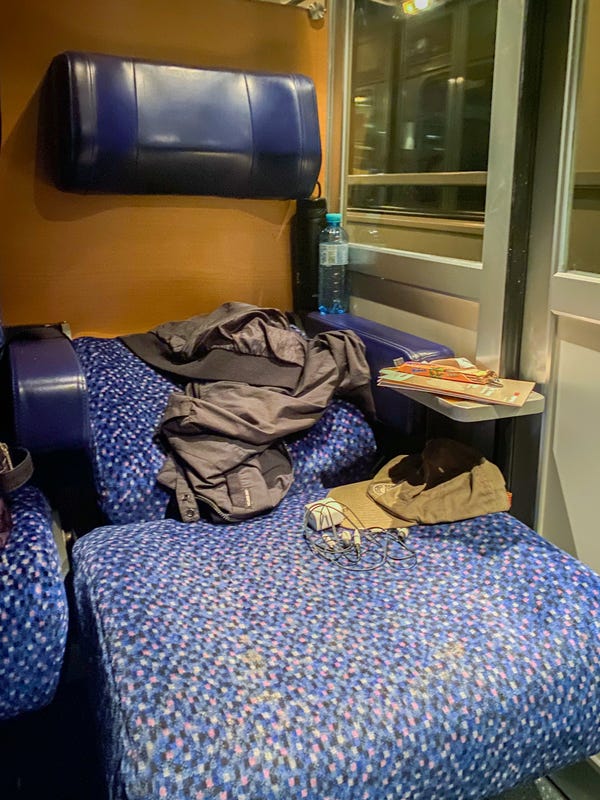
Joey Hadden/Business Insider
It had two cushions and reclined far enough to almost lay flat, but not fully.
Each seat came with a small table that slid out from the armrest.
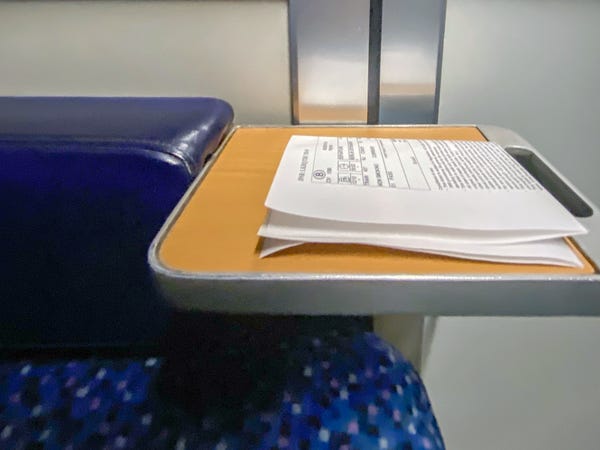
Joey Hadden/Business Insider
It was large enough to fit my ticket and phone but not much else.
Right away, I thought the room was cramped and lacked enough legroom for each traveler.
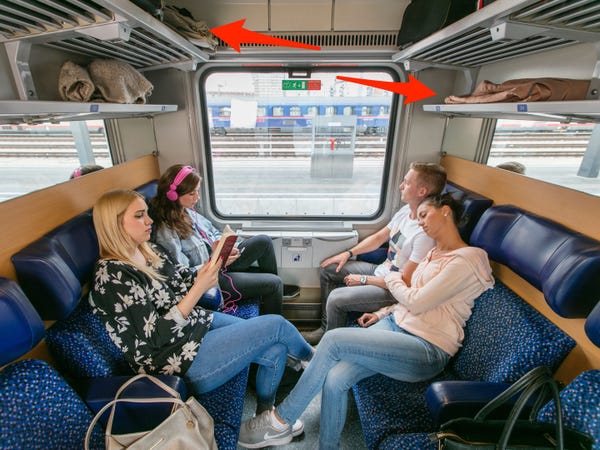
Nightjet – © ÖBB/Harald Eisenberger
However, I was surprised to find ample luggage space on two rows of storage racks above the seats.
I wanted to charge my phone, but I only saw two outlets next to the window in my carriage. I had to communicate with other passengers to take turns using them.
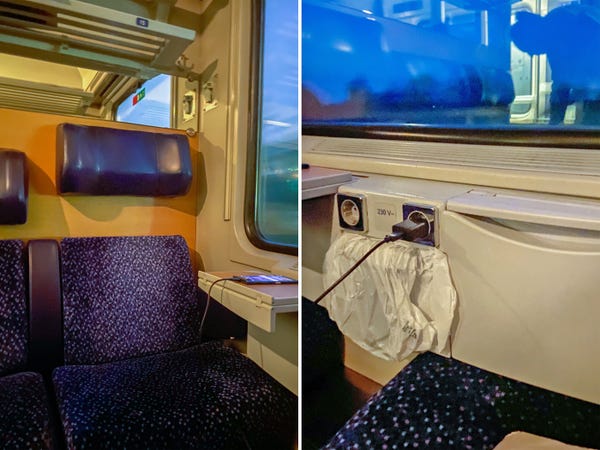
Joey Hadden/Business Insider
An OBB Nightjet rep told BI that new cars that began running in 2023 have more outlets.
Even though my ticket didn’t come with a meal, I checked out the menu to see what was available for purchase.
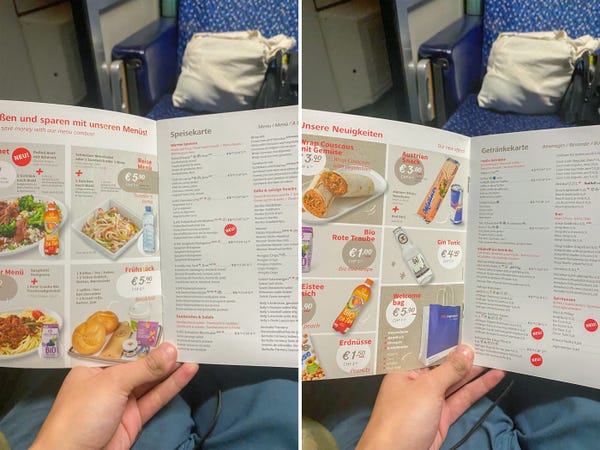
Joey Hadden/Business Insider
I thought it had a wide selection with snacks, pasta, and wraps.
Since I had already eaten, I skipped the food and used one of the two shared bathrooms in the car to brush my teeth. The bathroom looked like it hadn’t been cleaned in a while.
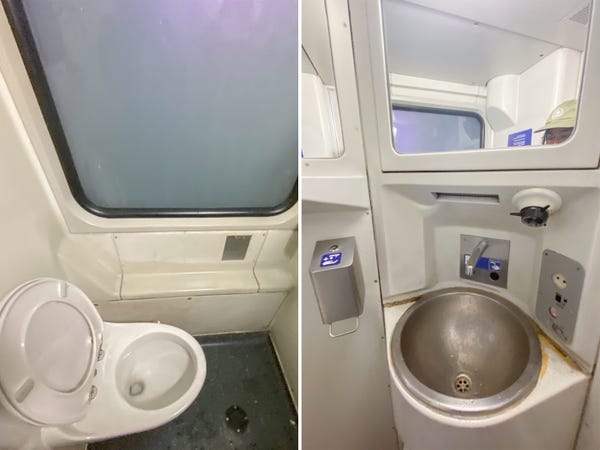
Joey Hadden/Business Insider
“Toilets are always cleaned when the trip starts,” OBB Nightjet said in a statement to BI. “In addition, our staff is doing regular checks during the night.”
Back in my room, someone had turned the lights off. I tried to fall asleep but found it impossible with the constant bumps on the ride and so many people around me.

Joey Hadden/Business Insider
I had hardly any personal space.
I reclined my seat all the way, but I thought the gap between the seat back and the bottom of the seat made it tough to get comfortable. I didn’t see any pillows or sheets provided for guests, either.

Joey Hadden/Business Insider
The rep for OBB Nightjet told BI that pillows and sheets are only provided for guests in the bunk-style sleeping cars because the seating carriage is not recommended for long-haul trips.
Although seats were assigned, I quickly caught on that other passengers were moving around the car to find less crowded rooms. I followed suit.
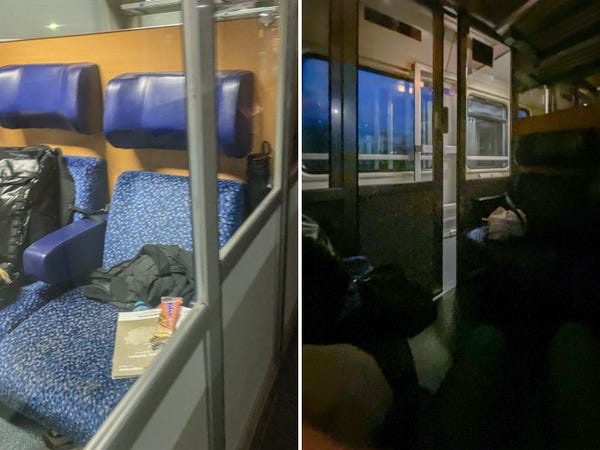
Joey Hadden/Business Insider
I ended up switching to a different cabin with only two other people.
But I knew that someone boarding at one of the many overnight stops could kick me out at any time if the seat I switched to was assigned to someone else.
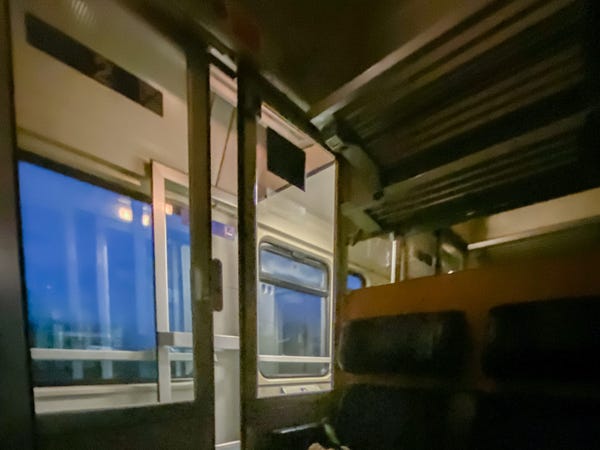
Joey Hadden/Business Insider
Even in a less-crowded cabin, I couldn’t get comfortable on such a bumpy journey or with the knowledge that someone might wake me up to move.
I ended up staying awake until the morning.
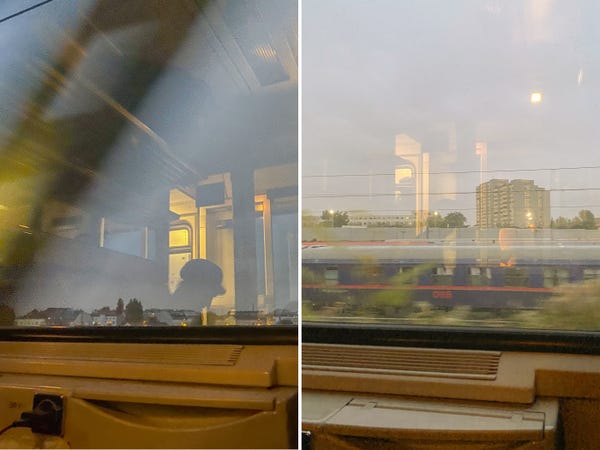
Joey Hadden/Business Insider
My train arrived in Vienna at 7 a.m., and I was so exhausted that I ran around town looking for any hotel that would take me in so early in the morning.
Splurging on a hotel room upon arrival for a few hours of sleep made me feel like the cheapest ticket on an overnight train ultimately wasn’t worth it.

Nightjet – © ÖBB/Harald Eisenberger
Next time, I’ll book a flight or take a train with private cabins.



